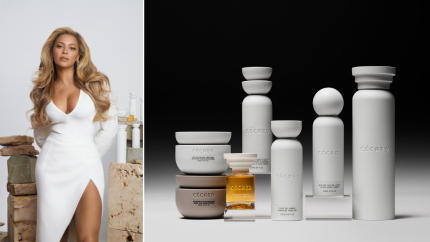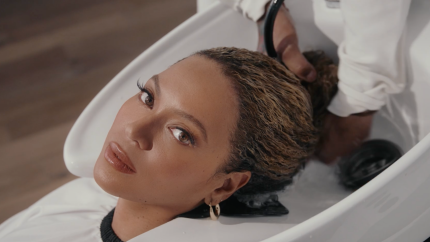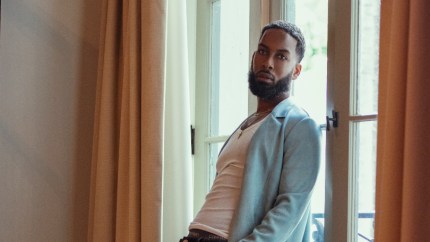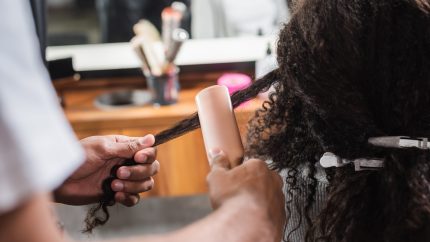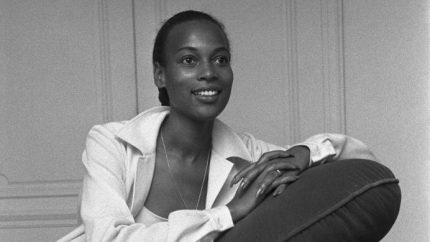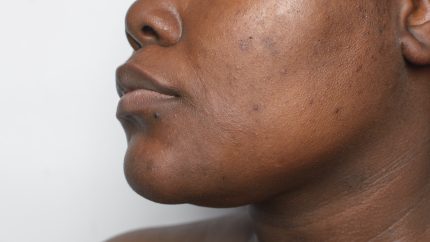Beyoncé makes a big investment in Black hair schools, including Tina Knowles’ alma mater
Beyoncé’s Cécred x BeyGOOD Fund will benefit one of the oldest Black hair schools in the country.

Before Tina Knowles ruled the Houston haircare scene with her Headliners Salon and launched a haircare brand alongside her eldest daughter, global icon Beyoncé, she was a student.
In the 1980s, Knowles attended one of the oldest Black-owned hair and cosmetology schools, the Franklin Insitute in Houston, Texas. The school dates back to 1915, making it not only one of the oldest Black-owned beauty schools but also one of the oldest Black-owned businesses in the country.
“She had a wonderful salon here in Houston,” fourth-generation Franklin Insitute owner Ron Jemison Jr. told CBS News of Knowles. “It wasn’t that she just graduated from Franklin; she actually really impacted the Houston community with her salon.”
Now, that impact will be even greater. Through her Cécred x BeyGOOD Student Scholarships initiative, Beyoncé will contribute $500,000 to five Black hair and beauty schools, including the Franklin Institute. Other schools include Beaver Beauty Academy in Atlanta, Trenz Beauty Academy in Chicago, Universal College of Beauty in Los Angeles, and Janas Cosmetology Academy in New Jersey.
Through the fund, annually, 25 students across the five schools named above will receive $10,000 each in scholarships and financial aid, and another 25 salon owners based in the same cities as each of the five schools will receive $10,000 in grants through the Cécred x BeyGOOD Salon Business Grant.
This program’s potential impact could be huge. For Black aspiring hairstylists, there can be major barriers to entering the industry, including the financial burden (on average, it costs $20,000 to complete beauty school) and lack of geographic access to salons that can employ them. According to the Bureau of Labor Statistics, roughly 13.2% percent of hairstylists are Black, while roughly 77% are white.
“One of the foundations of BeyGOOD is economic equity. And so to think about that, the underbelly is that there is an inequity,” said Ivy McGregor, executive director of Beyoncé’s BeyGOOD.
She added, “We believe that everybody has the right to thrive. And so the thing that we’re excited about, while our tenets are education and entrepreneurship, both of them converge through this program.”
Recommended Stories
Jemison Jr. shared that he feels the scholarship opportunities will “definitely” motivate those aspiring to work in the beauty industry, “but just [don’t] know the steps to take.”
He added, “And so to see somebody that they might idolize, somebody that comes from the same hometown as they do, that has made it, [and] has used their platform to give back to the community and also show a statement of, ‘You can do it!'”
McGregor also explained that through this initiative, the organization aims to “tell a broader story” about the “longstanding” culture of Black haircare in this country.
“What better school than Franklin Institute to tell that longstanding story, with a history of having served Houston and surrounding areas for so many years?” she noted.
This mission is also personal for McGregor, who, much like Beyoncé, also grew up in Black hair salons.
“It’s where you will hear anything talked about. It’s the conversation where you’ve got somebody that’s hilarious and making everybody laugh. You’ve got some woman that’s the tenured woman in the community that’s offering everybody wisdom, right? You have all of these stories, and everybody’s in a safe space to share,” she explained. “It’s an apex. It’s a center of culture in our community.”
More About:Lifestyle
